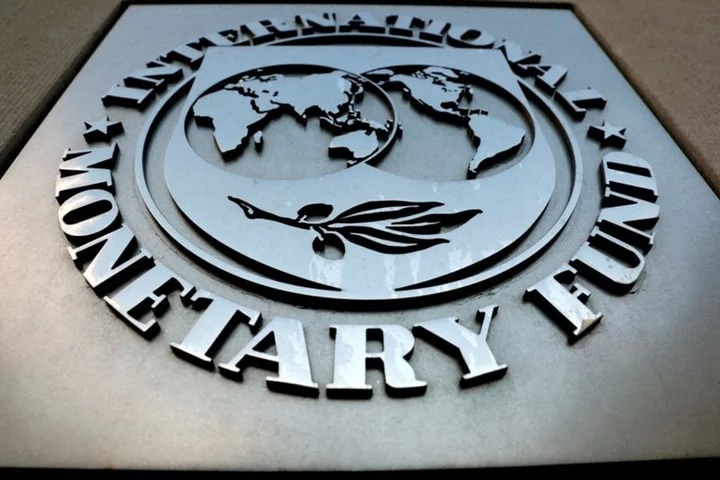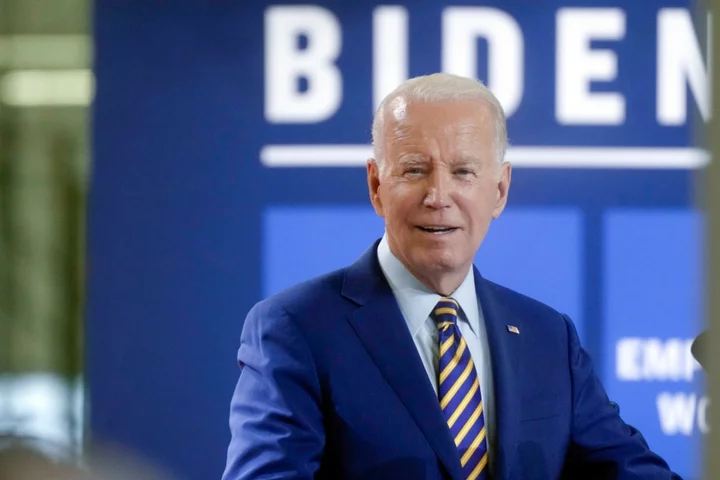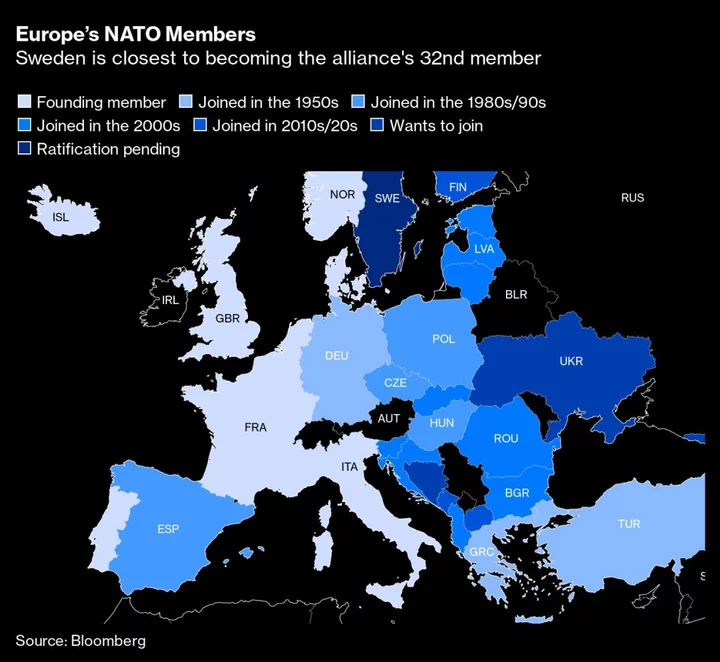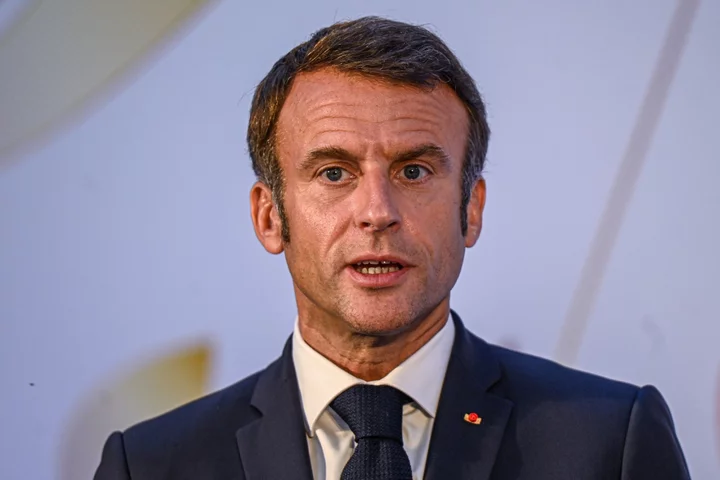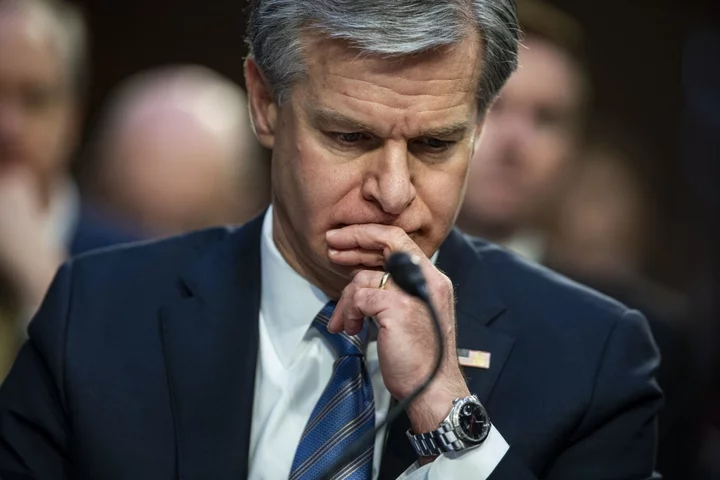The regulator’s letter was scathing, a laundry list of failings ranging from insufficient controls to flawed risk management that culminated in the order to shrink the fintech’s deposits.
That heaped pressure on Solaris SE, the recipient of the September letter, to renegotiate a key acquisition. It’s also in talks to raise fresh money despite a difficult funding environment to ensure its financial strength keeps up with growth ambitions.
The Berlin-based firm isn’t alone: The hardball approach now appears to be the norm at BaFin, the watchdog better known for failing to prevent the Wirecard AG scandal. BaFin has been leading what’s arguably Europe’s biggest clampdown on firms that are challenging traditional finance, announcing sanctions on about a dozen payment companies and other financial firms over the past year. The actions have hit them hard and compounded the drop in valuations that the sudden end to the era of cheap money has brought about.
For Mark Branson, BaFin’s new president, they’re part of an effort to repair the watchdog’s image after the Wirecard scandal prompted criticism that it was more focused on investigating journalists and shortsellers than alleged fraud at the now defunct company. But while it has taken a tougher stance, fintech executives privately complain that the watchdog still doesn’t understand their business and its overly zealous attitude risks stifling their industry. Proponents of tighter oversight argue that the the real test is yet to come.
“My current assessment is that it’s more than just show,” said Gerhard Schick, a former German Green Party politician who now leads Finanzwende, an NGO that describes itself as a counterweight to financial industry lobbyists. “We can only really assess the change of course in three or four years,” he said, if by then Germany manages to avoid another large scandal.
Wirecard imploded in 2020 after saying that cash amounting to a quarter of its balance sheet probably never existed. Investors lost billions in a scandal that tarnished the image of Germany as a place to do business. BaFin’s top two executives departed and Germany’s Finance Ministry handed the regulator new powers.
Wirecard hasn’t been the only firm to claim that it’s an innovator, only to go bust and weigh on Germany’s financial system. When factoring firm Greensill Capital collapsed in 2021, municipalities lost much of the money they had deposited at its German bank and the country’s more established lenders faced additional costs to fill up an industry fund for protecting savings.
Branson, a Swiss and British citizen, has sought to speed up processes at the watchdog and make it “braver” in tackling issues that it perceives at individual firms or the wider financial system. Some of the changes started before the collapse of Wirecard, yet Branson “brought a lot of drive to the organization,” said Hilmar Zettler, an executive board member at the Association of German Banks.
“Our approach is: same business, same risks, same rules,” a BaFin spokesman said by email. “This leaves no room for more or less stringent supervision of a particular market segment. And a good understanding of all business models in the financial market is, of course, a basic prerequisite for our supervisory work.”
Branson’s crackdown has proven costly for the industry. Last month, French payments giant Worldline SA plunged about 60% on the day it disclosed slower growth prospects and plans to shed higher-risk clients in a clean-up effort driven in large part by a BaFin audit. Separately, KKR & Co. agreed earlier this year to hand Unzer over to its creditors to help fund growth. The payment firms is another company BaFin had cracked down on.
A spokeswoman for Worldline said the company went further than what BaFin had demanded, and that its German unit was “fully mobilized” to address all of the watchdog’s findings and recommendations. Unzer said last year that it cooperated with BaFin and would continue to do so.
BaFin declined to make Branson available for an interview. At a recent conference BaFin held for fintech executives, Branson said the watchdog has “high supervisory standards that all market participants have to respect.”
“BaFin is extremely open to innovation, that’s why we’re here with this exchange,” he said in September in Berlin. “But innovation has to fundamentally be in the interest of clients and the financial center.”
To ensure the rapid growth of fintech firms doesn’t outpace the build-up of controls, BaFin imposed caps on the number of clients that certain neobanks or payment companies can take on. Solaris, a white-label lender that offers banking products through cooperation partners, had been told to cut client deposits in order to bring a measure of capital strength back in line with regulations. That threat, which would have choked off growth, is now off the table.
Firms have had to hire additional audit and compliance staff. Some, including Solaris, Unzer E-Com GmbH and N26 Bank AG have had to pay for external monitors who report to BaFin on their progress in addressing deficiencies. In the most recent clampdown, BaFin on Wednesday told a unit of Swiss company Leonteq AG to improve its controls for preventing money laundering and terrorism finance.
Some industry executives, who asked for anonymity to discuss their views, argue that BaFin appears to be focused on demonstrating to politicians that it’s enforcing the rules. The resulting burden for the industry, whether time-consuming administration or costs, is higher in Germany than in other European countries, they said.
“We see that the demands of regulation in Germany appear higher than in other European countries,” a spokesman for Germany’s Federal Association of Payment- and E-Money-Institutions said. “We see the need to set a strategic direction to secure Germany as a financial center.”
That, of course, is precisely why BaFin is now taking a more pro-active approach, says Valeriya Dinger, a professor of economics at the University of Osnabrueck in Germany who is also a member of BaFin’s advisory board.
“Trust was really shaken by the events around Wirecard,” Dinger said. BaFin’s efforts are “good for the financial center, but also for individual firms because it helps to say you’re from a jurisdiction with functioning regulation.”
(Updates with BaFin spokesman’s comment in ninth paragraph.)
Author: Nicholas Comfort, Agatha Cantrill and Verena Sepp




